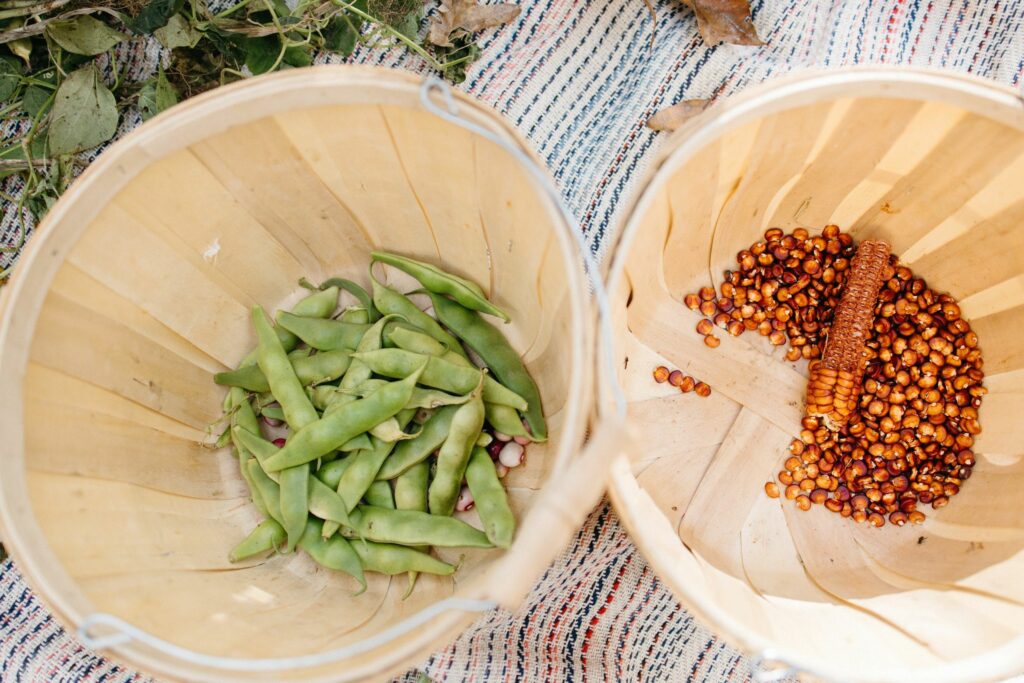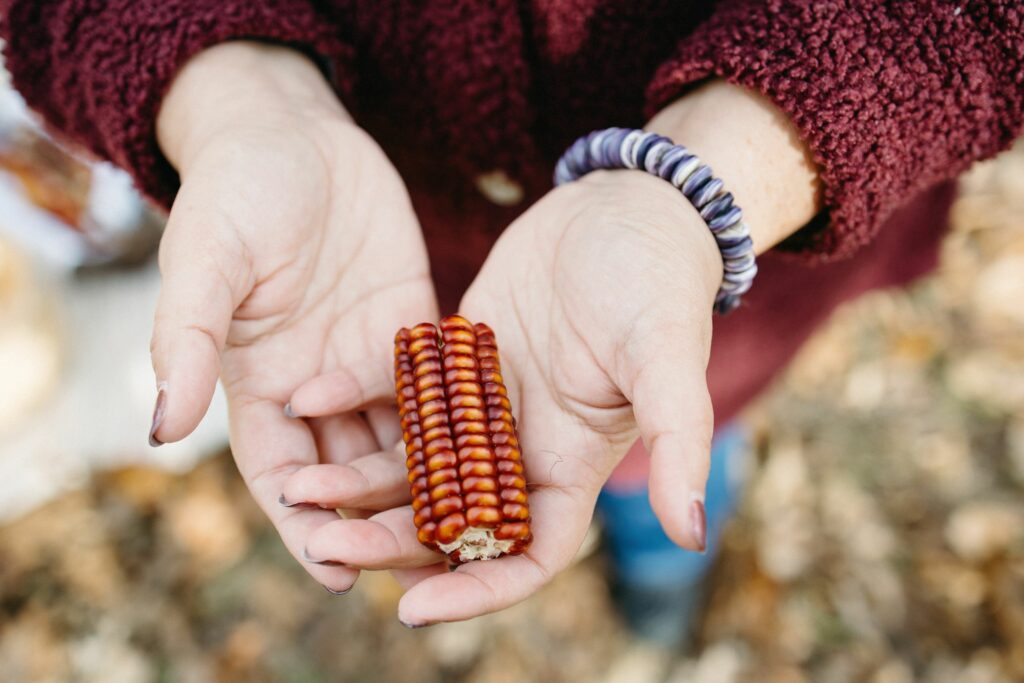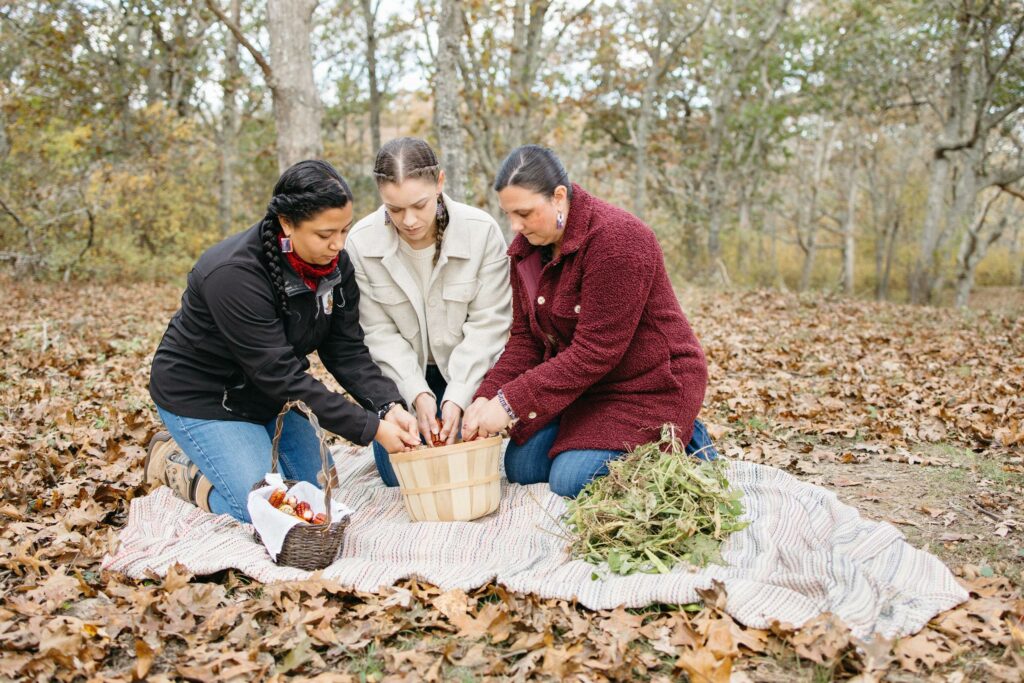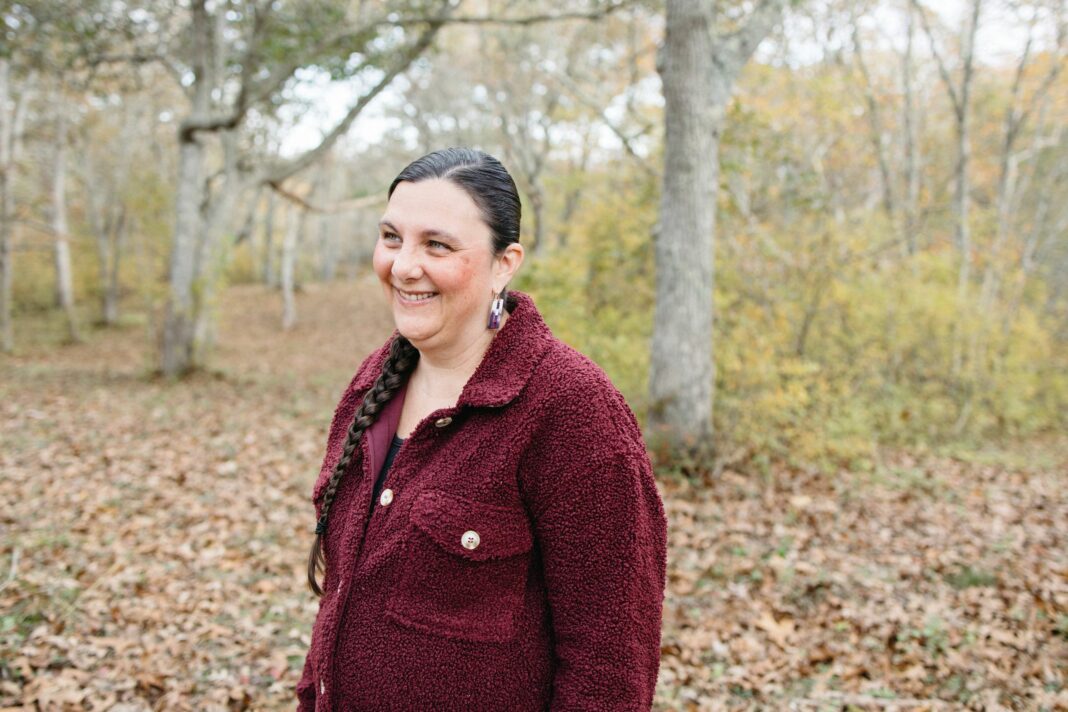Meet the executive director of Kinship Heals, where protecting women and children is part of protecting Mother Earth.
On a very rainy day, I sat down with Jennifer Randolph. Bluedot had heard that Jen was doing interesting and important work with her Wampanoag tribe, including finding ways to address food security and to restore a sense of shared community.
Environmentalism is often defined too narrowly — saving a species or reducing our greenhouse gas emissions. Those deep in climate work, however, understand that environmentalism is also about preserving and strengthening communities. Confronting our climate crisis means also addressing inequality, poverty, sexual and racial violence, and food insecurity.
Jennifer Randolph knows this. She is the founder and executive director of Kinship Heals, an organization that helps survivors of domestic and sexual violence in the Wampanoag community, while tackling the issues — poverty, inadequate housing, disrupted food systems, and more — that give rise to it. Restoring a healthy community, Randolph insists, creates a healthier world.
Leslie Garrett: Bluedot’s focus on climate extends to environmental justice. It’s all the things wrapped into what our changing climate is creating, including people needing to develop food security, and get reconnected to the soil. Tell me about your community and the work you’re doing within it.
Jennifer Randolph: If you look at our mission and our vision, we talk about ending violence against Native people and supporting an increased capacity for our communities to heal from, and respond to, and prevent violence, using methods that are deeply rooted in our culture and traditions that were in existence prior to colonization. And so, when you think about that statement in itself, why did we start experiencing violence? What was that about? It was about people coming here looking for resources, looking to take over land and change the way land was being utilized, and to extract its resources. And with that came violence, there came a whole disruption of food systems. And when they changed the way the land was being utilized, such as just gardening — they call it husbandry, we call it being imbalanced, right? We’re growing Three Sisters gardens (bit.ly/Three-sisters-gardens); we’re not digging into the earth, we’re mounding the earth along river beds and planting crops that naturally grow together — the corn, beans, and the squash. We’re not planting single rows of corn in a field where you’d have to bring irrigation. … I think climate change starts when you start working against nature.
How do we heal our communities and how do we preserve them so they can thrive? We need to restore our ways of sustainability, which is our food systems. … We were moved and displaced and our ceremonies that connect us to land were interrupted. Then, along with colonization, came the removal of children. So the knowledge that gets passed down gets watered down. Our kids lost connection to place and community. So we’re about restoring those connections, because it all goes hand in hand.
Within our tribal community, we have water protectors and environmentalists. And we talk about protecting Mother Earth. What needs to go hand in hand with protecting Mother Earth is protecting our women and children. You cannot be a water protector and a protector of Mother Earth if you’re putting hands on women, because we come from the same sort of energy — we give life like Mother Earth does. We birth the next generations. Those are the traditional teachings.
So when we sat down to build our organization, we went [back to] our traditional ways prior to colonization. And that includes food sovereignty, taking care of Earth, taking care of those relationships.



LG: So … food sovereignty. I don’t know that I’ve completely wrapped my mind around how food sovereignty is tied into helping women and girls and addressing domestic violence.
JR: Prior to colonization, women were heads of the households. Men would go off and … go fishing, go hunting. [But] we were the ones who tended to [most of] the food systems, and the food systems belonged to us. When you got married, a man would leave his community and move in with a woman’s community. And it would be her family that he lived with. And the children were hers, too, because you are who your mother is. Being in control of the food systems and having the house and birthing the nation’s children, that was sacred, that was special. And nobody put a hand to a woman because you were harming your future. If someone wasn’t a good partner, a woman would just put the man’s stuff outside. And that was a signal to the rest of the community that he was no longer welcome there. And she was able to do that because she controlled the food systems. Women weren’t relying upon men to provide for them.
We can’t replicate what we had in the past. But if we can make sure that everyone has access to food and has enough to survive, then we know — our women know — that they will be fed.
LG: So you have community gardens. With the three sisters, are you growing other things as well?
JR: We’re doing our traditional corn, beans, and squash. And Cherokee Purple tomatoes. We haven’t had the opportunity yet to save our seeds and protect them from cross pollination, but we’re gonna get there. The other thing that we want to do, too, is plant a food forest on our newly acquired property. We want to work out agreements — this is a long term goal — with the Land Bank, and the other conservation agencies, that native people can go forage for wild edibles and our traditional foods on those conservation properties that encircle tribal lands.
LG: So having control of the food systems is a safety net.
JR: One strand of that safety web that we had previously. Our strategy is to just keep learning and looking at what we had prior to colonization, because we didn’t have domestic violence, sexual assault, there’s no word for any of those concepts in any native language. So it’s just looking at what we had, and trying to figure out a modern day version of that. And to put that into place.
LG: In what ways?
JR: So we talk about three sisters gardens. The sisterhood bonds that existed within the women within the community weren’t like they are today. Women’s relationships were very deep. … Having those gardens is a lot of work.
I have three daughters. So I think about them being competitive. And you know, the drama that can go along with a bunch of girls being together. We found out firsthand, [with] the corn itself. A lot of native corn is like this. You can’t just eat corn, you have to remove the outer layer in order to consume it. And that has to go through a special process or else you get sick. Just dealing with the corn itself is very labor intensive. And when you try to do it by yourself, it’s miserable. And there’s no way that, by yourself, you can grow enough and process enough to feed your family. But when you do it together with the other women in your community … That’s how we worked. We didn’t have individual family gardens, we had community gardens, we did this together as a community. When you spend that much time with somebody doing that kind of work, the bonds and relationships that are developed are really deep and strong.
LG: And there also wouldn’t be a sense of my corn and your corn.
JR: Correct. And from a domestic violence and sexual assault standpoint, one of the basic tactics is isolation. How are you isolating someone when they’re so interconnected like that? You’re not. So with our three sisters gardens, we’re making sure that our women and girls are building those strong, healthy relationships. The best way to do that is to go about those tasks that we used to do together, shelling the beans. So [with our daughters], we picked the beans two years ago at IGI. We’re in that field with the beans for a few hours, and the girls were just talking away and doing different tasks. What kind of activity are you going to create that’s going to simulate that? Why are we going to reinvent the wheel when we can just do those things that we used to do? And those foods are so much healthier for us. So it just makes more sense all the way around — this is what’s gonna provide health and safety for our community.
LG: So, bottom line: Building community is essential, right?
JR: When something happens [in our community], it impacts all of us. And knowing the rates of violence that we suffer — I think eighty-five percent of our women have experienced violence — when you think of the people who are impacted, or connected to any one victim, you can say all of us are impacted.
… I think that we all band together and do this work because we will be with each other for the next 1,000 years. And if we don’t do something, our grandkids will be in the same [situation].
I look at my work, and I think, Okay, so I’ve made a small improvement for my daughters. I want to make sure that when they have kids, things are better for them. It may take us that long to get there; I still think we’re not moving fast enough. Maybe four or five generations down the road, things will be different for them. I probably won’t be able to see it, but it’s got to start somewhere.

